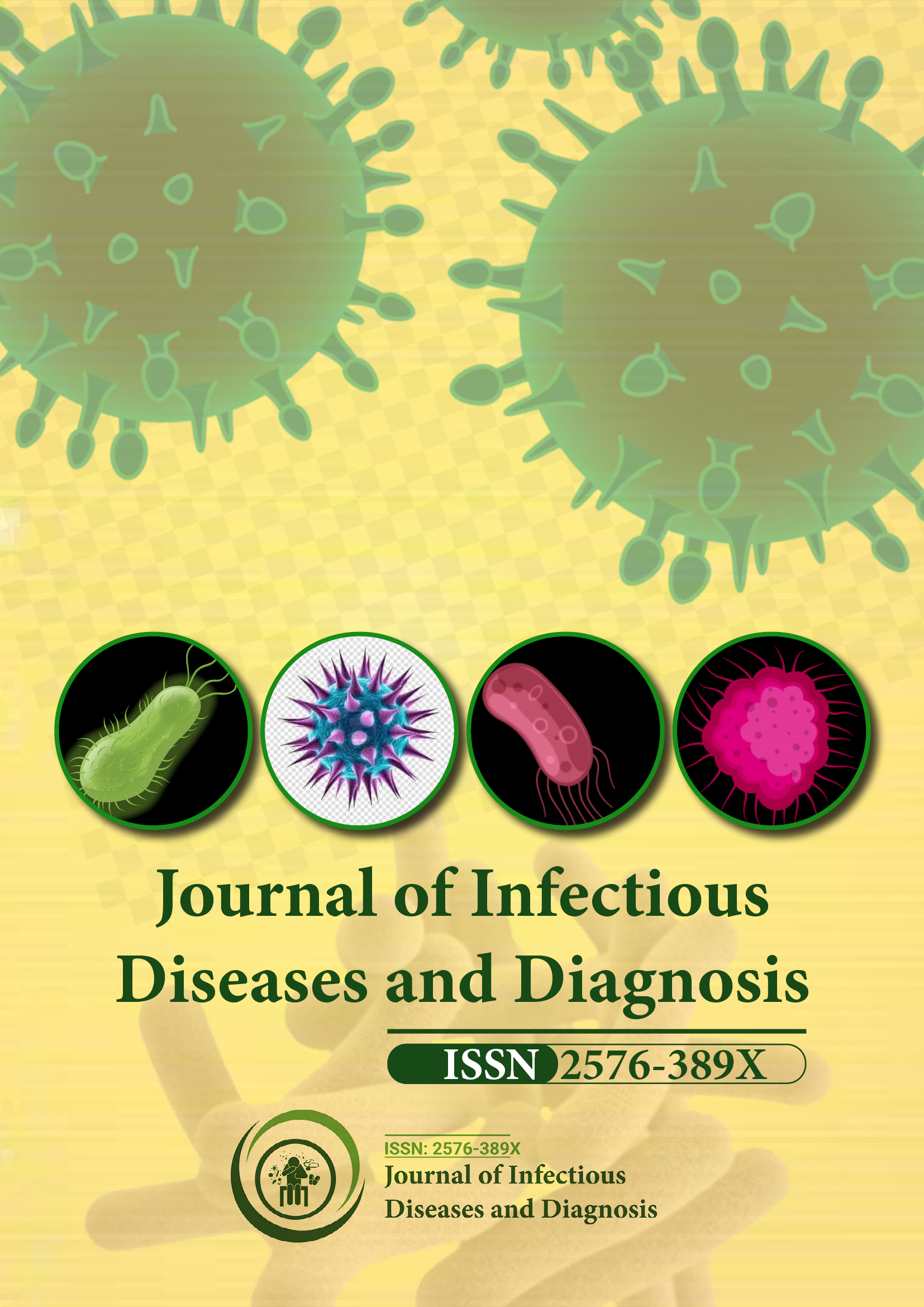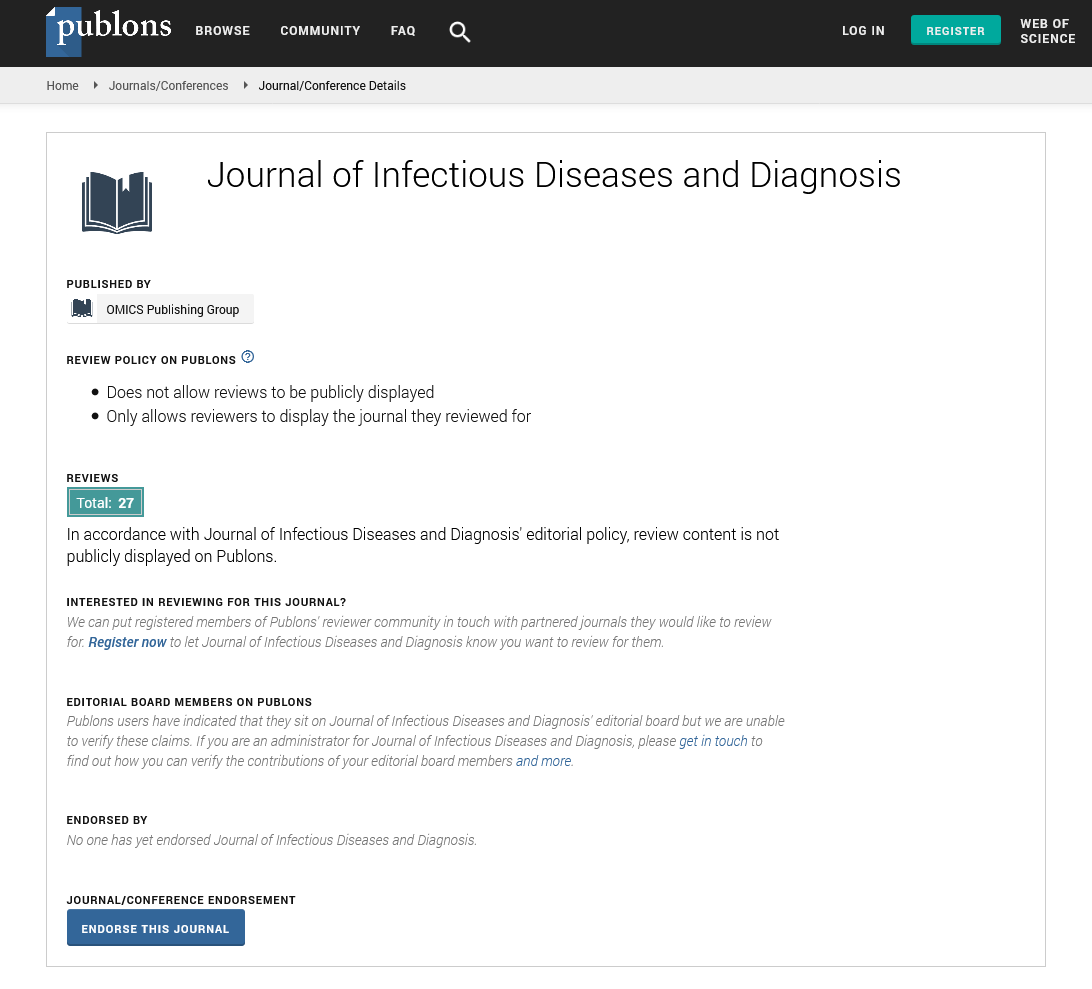Indexed In
- RefSeek
- Hamdard University
- EBSCO A-Z
- Publons
- Euro Pub
- Google Scholar
Useful Links
Share This Page
Journal Flyer

Open Access Journals
- Agri and Aquaculture
- Biochemistry
- Bioinformatics & Systems Biology
- Business & Management
- Chemistry
- Clinical Sciences
- Engineering
- Food & Nutrition
- General Science
- Genetics & Molecular Biology
- Immunology & Microbiology
- Medical Sciences
- Neuroscience & Psychology
- Nursing & Health Care
- Pharmaceutical Sciences
Perspective - (2023) Volume 8, Issue 3
Optimizing Post-Transplant Care: Immunoglobulin Level Monitoring in Kidney Transplant Recipients
Mariana Thayer*Received: 01-May-2023, Manuscript No. JIDD-23-21710; Editor assigned: 03-May-2023, Pre QC No. JIDD-23-21710 (PQ); Reviewed: 17-May-2023, QC No. JIDD-23-21710; Revised: 24-May-2023, Manuscript No. JIDD-23-21710 (R); Published: 31-May-2023, DOI: 10.35248/2576-389X.23.08.219
About the Study
Kidney transplantation is a life-saving procedure for patients with end-stage renal disease. While this procedure offers a significant improvement in quality of life, it also exposes recipients to the risk of infections. Infections can lead to serious complications and adversely impact graft and patient survival. Identifying high-risk patients for infection is crucial for implementing appropriate preventive measures and optimizing post-transplant care. This study focuses on the monitoring of immunoglobulin levels as a potential tool to identify kidney transplant recipients at a high risk of infection.
Role of immunoglobulins in immune function
Immunoglobulins, also known as antibodies, play a vital role in the immune system's defense against infections. These proteins are produced by B lymphocytes and are responsible for recognizing and neutralizing pathogens, including bacteria, viruses, and fungi. Immunoglobulins can be divided into different classes, including IgG, IgA, IgM, IgD, and IgE, each with unique functions in immune responses.
Monitoring immunoglobulin levels
Monitoring immunoglobulin levels in kidney transplant recipients can provide valuable information about their immune status and the risk of infections. Immunoglobulin levels are typically measured through blood tests, and significant deviations from the normal ranges may indicate underlying immune dysfunctions. Specifically, a decline in immunoglobulin levels, particularly IgG, is associated with an increased risk of infections in transplant recipients.
Identifying high-risk patients
Pre-transplant Evaluation assessing the immunoglobulin levels in potential kidney transplant recipients during the pre-transplant evaluation can help identify individuals with pre-existing immune deficiencies. Low levels of immunoglobulins may indicate underlying conditions that compromise the immune system, such as primary immunodeficiency disorders or chronic infections. Identifying these patients before transplantation enables the implementation of appropriate preventive strategies to reduce the risk of post-transplant infections.
The regular monitoring of immunoglobulin levels in kidney transplant recipients can provide valuable information about their immune status over time. A decline in immunoglobulin levels, particularly IgG, may suggest the development of immune dysfunction, placing the patient at a higher risk of infections. Close surveillance allows healthcare providers to promptly intervene with appropriate preventive measures, such as prophylactic antimicrobial therapy or immunoglobulin replacement, to mitigate the risk of infections.
Identifying kidney transplant recipients with low immunoglobulin levels allows for the customization of prophylactic strategies to reduce the risk of infections. For example, patients with low IgG levels may benefit from prophylactic antimicrobial therapy or immunoglobulin replacement to enhance their immune response against pathogens. Such tailored approaches help minimize the risk of infectious complications, improve patient outcomes, and optimize graft survival.
Patients with low immunoglobulin levels are more susceptible to infections, and their infections may present with atypical or severe manifestations. Monitoring immunoglobulin levels facilitates early detection of infections in high-risk patients, enabling timely intervention and appropriate treatment. This proactive approach reduces the risk of severe infections, sepsis, and graft loss.
Regular monitoring of immunoglobulin levels in kidney transplant recipients promotes comprehensive post-transplant care. It allows healthcare providers to closely evaluate the patient's immune status, identify potential immune dysfunctions, and implement personalized strategies to optimize immune function. This holistic approach not only reduces the risk of infections but also improves long-term graft and patient survival.
Citation: Thayer M (2023) Optimizing Post-Transplant Care: Immunoglobulin Level Monitoring in Kidney Transplant Recipients. J Infect Dis Diagn. 8:219.
Copyright: © 2023 Thayer M. This is an open-access article distributed under the terms of the Creative Commons Attribution License, which permits unrestricted use, distribution, and reproduction in any medium, provided the original author and source are credited.

